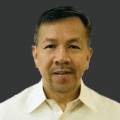Apec economic ministers worried about protectionism
VLADIVOSTOK, Russia – Philippine economic managers and their peers in the Asia-Pacific region are worried that more countries would put up more bariers to trade as the world’s economic growth cools down.
“There were statements during the ministerial discussions that there’s increasing protectionism. So the ministers said that this is something that member-states should really try to avoid doing,” Trade Secretary Gregory Domingo said at a press conference here after the President Aquino’s meetings with the leaders of Singapore and Chile.
“There’s concern around the table that the weakness that‘s being experienced in Europe, in particular, also in the US and the slowdown – a little bit of a slowdown – in China,” he added.
Socioeconomic Planning Secretary Arsenio Balisacan said that the Philippines and other Apec members wanted to make sure that their partners would not take a protectionists stand in the wake of the current euro crisis and the slowdown of some countries like China.
“We are espousing the position that we need to solve the problems that are facing our domestic economies in a way that we will not curtail the expansion of trade,” said Balisacan.
Article continues after this advertisementIn a joint statement issued after their two-day meeting, the Asia-Pacific Economic Conference (APEC) trade ministers said: “We noted with concern the International Monetary Fund’s downward projection for global growth for this and next year and the rise in protectionist instances around the world. These developments increase the urgency of further action to keep markets open.”
Article continues after this advertisementThe Apec trade ministers appealed to the to the World Trade Organization to beef up its monitoring of trade-distorting or protectionist measures as countries have become craftier in coming up with new policies that appear to be consistent with the rules but were actually barriers to trade and capital.
Domingo said that the Philippines was among those countries who have adhered to the WTO’s policies.
“We’re actually considered as having good behavior,” Domingo said.
During the Apec meeting, Domingo said members endorsed the tariff reduction on 54 items under environmental goods and services to a maximum of five percent by 2015.
For the Philippines, Domingo said this would affect, on one hand, local manufacturers of boilers and condensers, waste incinerators and water purifiers. On the other hand, Domingo said, this would benefit the country’s exports of TV cells or solar cells, parts of solar water heaters, filtering machines, machines for waste water management, air quality monitors and automatic voltage regulators for renewable energy applications.
